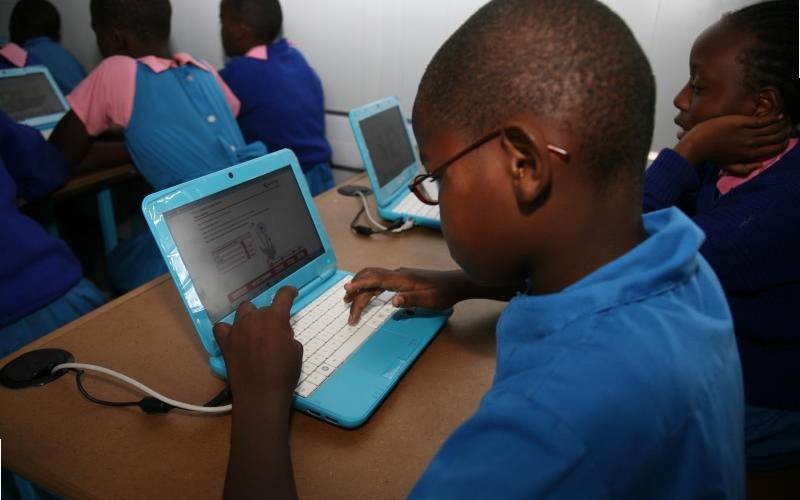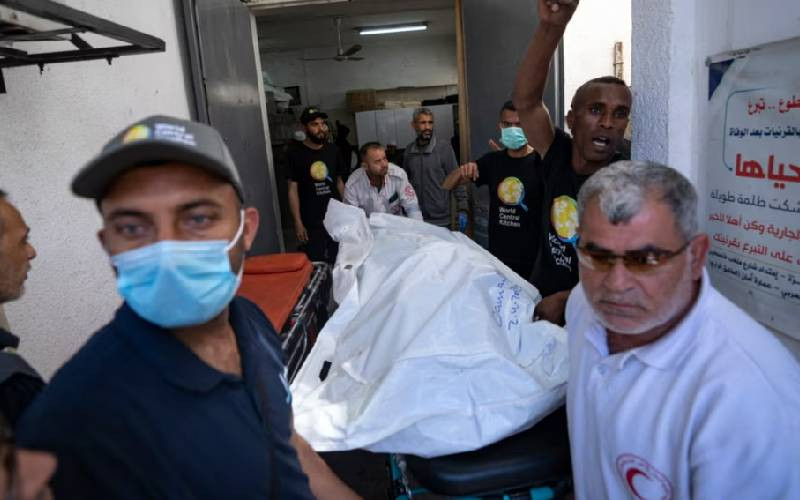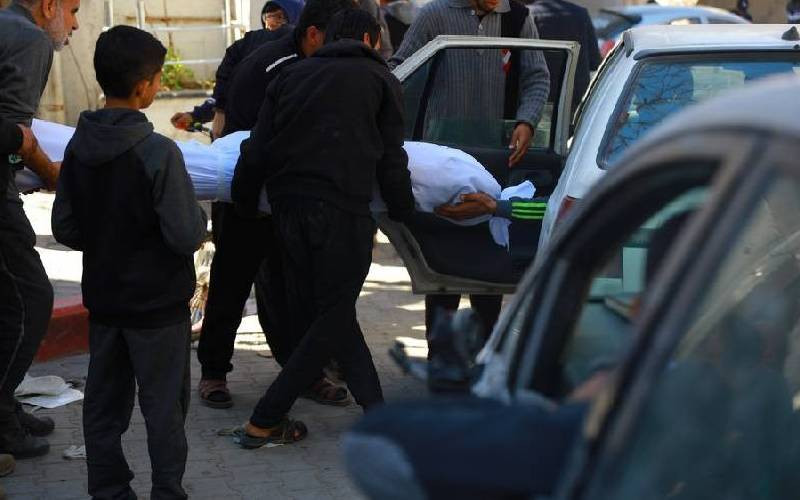By Protus Onyango
Kenya: The story of foreign aid has taken a different angle with students telling it from the recipient’s point of view. For telling the story differently the students have won a media award in the public affairs category.
The Associated Press recognised Pamoja Together, an exchange programme, that connects Boston University (BU) students with their counterparts in Kenya. The students, in a global news network, tell stories on the impact of foreign aid from the recipients’ angle.
Pamoja, the Kiswahili word for together, connects students from aid recipient and donor countries in a student-to-student learning process. Student teams are multi-cultural and multi-disciplinary, drawing the best students studying communication, public health and the humanities.
The programme’s goal is to nurture the conversation on aid, tell stories when they are still raw and engage a worldwide audience in re-imagining aid.
Through students’ interaction with the local community, challenges of diseases like malaria, typhoid, common dysentery; food insecurity; scarcity of clean water; lack of access to markets; poor health care and general lack of information, are addressed.
Quality productions
It is a journey that started not too long ago - April last year. Students from and Jaramogi Oginga Odinga University of Science and Technology (Joost) and Great Lakes University of Kisumu (GLUK) were trained to use iPads and cameras to record stories and images of aid projects and recipients in Western Kenya.
The Kenyan students established relationships with organisations implementing health and development projects, large and small, and did initial research on possible story ideas.
In May, eight students from BU came to Kenya to team up with those at Joost and GLUK to continue with field research, and create high quality productions – video, photography, audio and text - that capture the compelling stories of aid and its impact on residents’ lives.
The programme is part of BU’s Programme on Crisis Response and Reporting, an interdisciplinary collaboration between the Pulitzer Centre on Crisis Reporting in Washington DC, the BU College of Communication, the School of Public Health, and the Centre for Global Health and Development. The project was funded by the Bill and Melinda Gates Foundation.
One of the stories told is that of Jakline Atieno Oduor, 34. Atieno is a widow whose husband died in a fishing accident in Lake Victoria, leaving her to support her six children.
Her only option was to sell omena along the shores of the lake in 2002 but the supplies of dagaa fish, one of the lake’s mainstays, have dwindled and costs have shot up.
Out of desperation, Atieno, like other widows, turned to transactional sex, as this practice is known. And the price they have to pay for engaging in this is contracting HIV and Aids. “There are periods when fishing is very difficult and we don’t get much. It is hardest for us widows with children to raise,” Atieno says.
Fortunately, she has quit the business and is now economically empowered.
Stay informed. Subscribe to our newsletter
She is a member of Keeping Alive Societies Hope (Kash), which has given her some money to do a different business. “I have regained my self-respect and I am now able to feed my children without the guilt of sleeping with men,” she says.
Giving back
Kash is not the only organisation which has transformed residents’ lives. Care for the Earth, an organic farming organisation that strives to train Kenyan farmers to grow crops without the use of fertilisers, is also a blessing to the communities in Western Kenya.
The organisation was started by Kasim Bilali in 1993 in Ajigo, Siaya County to ensure that communities learn ways to reduce poverty, ensure food security and seize agribusiness opportunities. Bilali reclaimed and transformed arid land.
At Care for the Earth, community farmers can learn how to plant different kinds of crops, properly tend livestock and other farm animals, and how to create and use compost.
Bilali grows bananas, mangoes, beans and watermelons. To the naked eye, the land looks like any other farm, but Bilali created Care for the Earth to be more than that.
In addition to offering training to residents on agribusiness methods, the centre provides assistance so children can go to school, but on one condition: “During school holidays, the children must come back and work here as volunteers to learn the art of giving not just receiving,” explains Bilali.
“I wanted to pay back the society for the assistance I was given,” he says. “Whatever aid I get, it must be used where it can be doubled.”
And so far, he has managed to stay true to that promise. He has not taken any outside aid funding since the year 2000.
Gideon Balala, a subsistence farmer, benefited from Care for the Earth’s community trainings. “He came with knowledge,” Balala says of Bilali.
Bilali teaches farmers like Balala how to diversify crops so they can sell them in the local market. Balala consults with Bilali on the right crops to plant and when.
Angeline Aoko Owuor is another subsistence farmer who benefited from Care for the Earth.
“I learned how to produce milk from goats. I had goats before but didn’t know that they could produce milk,” Ms Owuor says.
She has also learned the best times of the year to plant certain crops. Now she uses her land more productively and chooses which crops to plant in order to maximise her yields.
In addition to community trainings on agribusiness and environmental protection, Bilali has also set up a conference centre on the property with rooms for 20 guests. Money from this facility helps contribute to the self-sustainability of the organisation. Families go for picnics and learn from a farm that uses natural methods to harness natural resources.
Bilali has planted trees that act as organic water collectors. This has changed the climate of the area from dry land to wetland. The neighbouring communities have put Bilali’s skills into practice by planting more trees on their own land.
“The success stories from the people, State and non-State agencies have brought about positive change. The powerful multiplier effect of the media will help see such success-story programmes emulated and replicated elsewhere in society,” says Charles Oduke, the programme’s country co-ordinator.
He adds, “At the same time, by highlighting some of the shortcomings in development programmes, policy makers and programme implementers are given an opportunity to re-think their strategies and remedy them.”
Positive change
Dr Oduke lauds the media for important dual roles as informers and educators. “Citizens need information to enable them tackle the challenges they face in their day to day business. It is by the media pointing out the inadequacies in our policies that citizens get to meaningfully engage the policy maker to bring about positive changes,” he says.
Beatrice Orwako, one of the students in the programme, says aid is critical in developing rural areas.
“Whatever little international or local donors give, if it is used well, it transforms lives. Let many Kenyans with means embrace philanthropy,” she adds.
 The Standard Group Plc is a
multi-media organization with investments in media platforms spanning newspaper
print operations, television, radio broadcasting, digital and online services. The
Standard Group is recognized as a leading multi-media house in Kenya with a key
influence in matters of national and international interest.
The Standard Group Plc is a
multi-media organization with investments in media platforms spanning newspaper
print operations, television, radio broadcasting, digital and online services. The
Standard Group is recognized as a leading multi-media house in Kenya with a key
influence in matters of national and international interest.
 The Standard Group Plc is a
multi-media organization with investments in media platforms spanning newspaper
print operations, television, radio broadcasting, digital and online services. The
Standard Group is recognized as a leading multi-media house in Kenya with a key
influence in matters of national and international interest.
The Standard Group Plc is a
multi-media organization with investments in media platforms spanning newspaper
print operations, television, radio broadcasting, digital and online services. The
Standard Group is recognized as a leading multi-media house in Kenya with a key
influence in matters of national and international interest.







